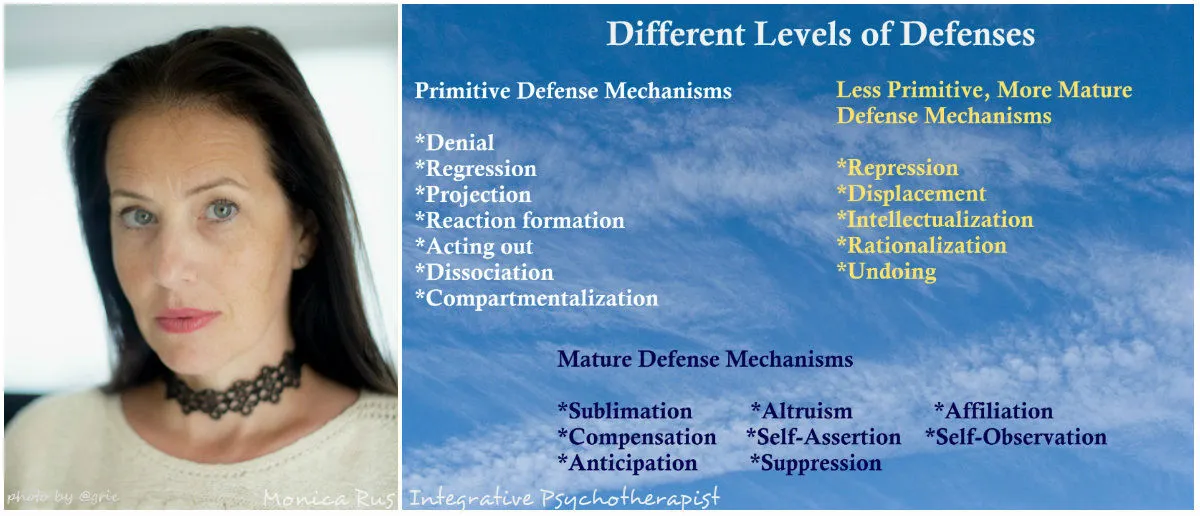About Defence Mechanisms
The most challenging work for a psychotherapist is to identify which defense mechanisms his client uses. This requires years of study and practice.
With skill and gentleness, any psychotherapist in his work with clients must bring into the light, in the ''psychic field'' of the client, his defense mechanisms and especially to help him to become aware and understand why he/she uses them. Defense mechanisms are in fact ways in which we behave and think in situations where we have to ''defend''ourselves, most of the time in interpersonal relationships. I'm going to start a series of short articles about defense mechanisms and the first for today is: In the category of Primitive Defense Mechanisms, DENIAL is the most important. Denial develops in early childhood and it means not accepting reality because it is too painful. Most of people use denial in everyday life to avoid situations of pain, frustration, in which is difficult to recognize terrible things about themselves. When we use denial, we actually refuse to acknowledge the reality and the truth about a things, events or experiences. It is also a self-defense mechanism used by victims of natural disasters, war victims, victims of physical or mental abuse who have suffered multiple trauma. For EXAMPLE, a person who has an alcohol addiction at first will deny this, will not recognize and try to compensate for mental discomfort, showing how well he or she is doing at work or in family relationships. ''No, I'm just an occasional drinker.'' or; '' I drink daily, but that's not a problem, I can work normally at home and at work.'' • Another example is when an employee is angry on his boss but doesn’t recognize: "No, I'm not angry on him!" • A person is arrested for drunk driving several times but doesn't believe he/she has a problem with alcohol; • A diabetic patient eats chocolate, denying that he has problems with blood sugar; • Denial is also the first stage in the labor of mourning. You deny the fact that a loved one died: "No, I don’t think he/she died, it is someone else!", or: ''I don’t think my lovely dog/cat died, it is still alive!’’. • Somebody is caught stealing, but when he has to admit it, he says ''It has not happened, it's not true! I was not there!'' • A woman is diagnosed with breast cancer but behaves as she has nothing, she doesn’t recognize it. In similar situations, patients visit more doctors for separate opinions, hoping the diagnosis is false. • A smoker refuses to believe that smoking seriously damages health. In the long run, denial can have consequences that lead to adaptation difficulties because it prevents us from being honest with ourselves. If you are a Romanian reader, you can find a complete article about self-defense mechanisms on my blog. References: Monica
Most of the time, these defence mechanisms are unconscious, that means most of people don't know that they use them.

If we want to go deeper into the psychic dynamic of this defence mechanism, when we deny, we actually try to protect our Self-Esteem, without being able to accept our behaviors as that they are devoid of adaptive value.
Mecanisme de Aparare, descriere si exemple
I hope you have found interesting information in this article.
Thank you for stopping by!
Thank you for reading my post!